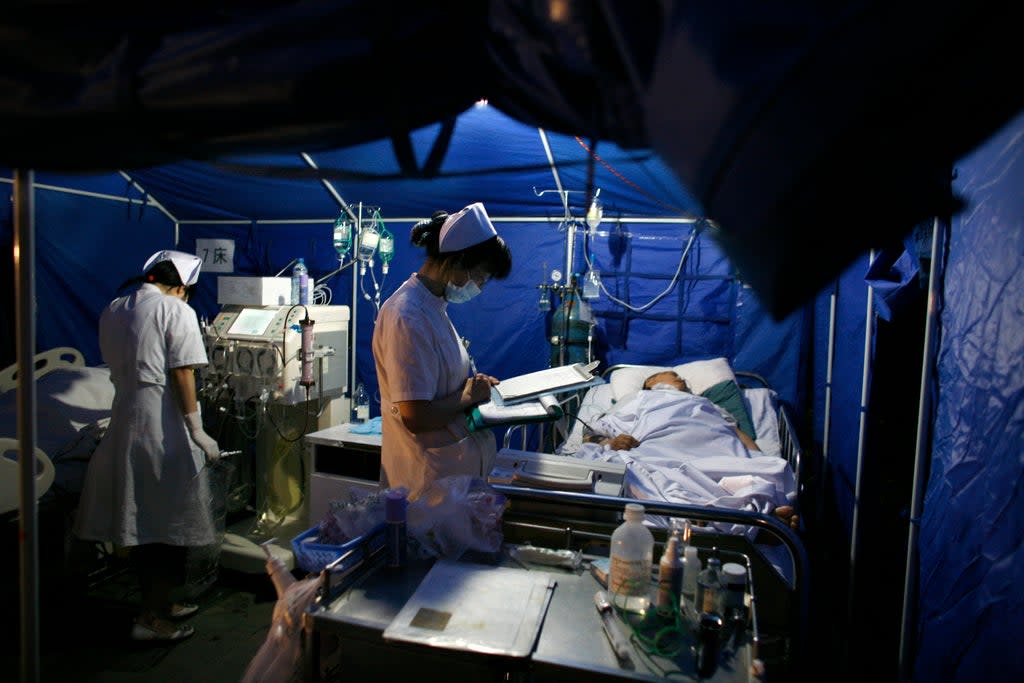China training nurses for combat situation involving island landing

China’s army is now training its military nurses to prepare them for combat situations, including island landing, using a boat simulator and dealing with medical situations like intravenous infusion and treatment of injuries.
The People’s Liberation Army prepared more than 300 nurses from a military hospital in the first round of simulation exercise reported to have taken place from July last year to this year in February, according to a report by the South China Morning Post.
In this training exercise, the nurses administered medication via an intravenous line in an almost-dark atmosphere during night time combat scenarios at sea with waves of 2 meters, the Joint Logistics Support Force said.
Explaining the challenges medical aid for nurses during island landing, the report said: “There would be insufficient light and turbulent waves in a combat environment when crossing the sea and landing on an island, which makes it risky to perform intravenous infusion, but also affects follow-up treatment of the wounded and sick.”
The report was citing a paper published by Chinese-language Military Medical Journal of Southeast China, quoting a team led by Jiao Wei from the logistics support force.
It added: “In information-based modern warfare, marine medical rescue and evacuation is challenged by a more complex environment… simulation training can recreate the ship’s environment to a certain extent, so that nursing staff can adapt to the special environment at sea.”
Since the training was carried out during the day, the nurses were made to wear goggles for blocking out light. In the darkness, the nurses had to rely mostly on touch to locate the vein in a patient’s arm to inject medication.
They also had to administer drugs while being onboard the boat simulator in motion and rocking.
Initially, one third of the total nurses failed to complete the task, the paper said. However, after three days into the training on the military exercise, the error rate of the nurses came down to about one-tenth of the time, the report added.
The training has been deemed not satisfactory, although effective, according to the team as the average time spent by nurses for inserting an IV and administering potentially life-saving medication under security was about six minutes. This duration is not fast enough, according to the team.
The military exercise also required nurses to work under the pressure of the sound of gunfire, mechanical noise, bad weather and sea sickness during the actual military situation. This could be a part of future training, the report added.

